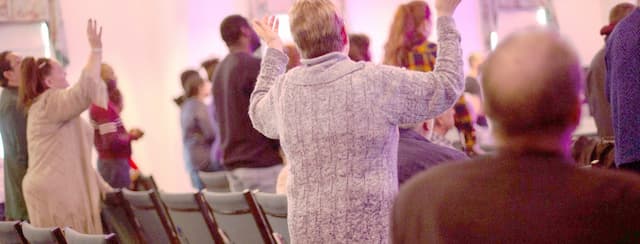A royal encounter (Exodus 3:1-10)
God shows up where we don’t expect him. For good reason.

Open Exodus 3:1-10.
A fire in the wild can consume hundreds of acres in just a few hours. No experienced bushman ignores a fire. Moses was no exception.
Moses was out in the wild to escape Pharaoh. If he ever had aspirations of ruling people, he’d given them up, taking a job shepherding animals. He led his flock to the edge of the wilderness. He feels safer in land that supports life sparsely, where human rulers have little interest.
Far from the cities of human administration, in a part of creation no one cares about, Moses discovers something astounding: God’s mountain (3:1). The king of creation is in residence here. Several times throughout the Bible’s narrative, God’s servants return to this mountain that lies south of the Promised Land. Each time we learn more about the Sovereign, his law, how he rescues his people, and how he rules the earth.
The fire Moses sees on God’s mountain is unlike any he’s ever seen. Fire consumes combustible materials, releasing energy as heat. A flame that does not consume is a different kind of flame: its energy comes from another place, a realm that does not destroy this one.
So Moses turns aside to investigate. The flame in the bush is an angel:
Exodus 3:2 (ESV)
The angel of the Lord appeared to him in a flame of fire out of the midst of a bush. He looked, and behold, the bush was burning, yet it was not consumed.
It’s the emissary of YHWH (mal·ʾak yhwh). We have encountered YHWH’s emissary twice before:
- He appeared to Hagar by a spring in the wilderness, giving her hope and direction (Genesis 16:7-11).
- He intervened to stop Abraham sacrificing Isaac, promising YHWH’s provision (Genesis 22:11-15).
Some theologians wonder if this angel of the Lord could be God himself (a theophany), or Christ (a christophany), but the ANE audience would not have heard the story in those terms. A great ruler was always accompanied by servants who announced his presence before he spoke. That is precisely what happens here. YHWH’s emissary reveals his presence — glowing in creation but not consuming it. When the great ruler sees that his emissary has gained Moses’ attention, he speaks (3:4).
The sovereign knows who Moses is and calls him by name. Moses does not know what name to use for the great ruler. The sovereign instructs Moses to remove his shoes, for this mountainside is a holy palace and the sovereign is in residence. What a contrast to the palaces of Pharaoh with their polished floors and vaunted ceilings, the handiwork of slaves! The bare earth is what Moses feels beneath his feet. Mountain slope and sky tower above him—his sovereign’s rugged handiwork.
The great ruler reveals himself. He has previously revealed himself to Abraham, appointing him the fountainhead of his representative kingdom. He confirmed this calling to following generations — Isaac and Jacob. Moses has stumbled into the presence of this great sovereign. He is afraid to look. He understands palace protocol, and he fears: you lose your life if the ruler doesn’t like the way you are look at him or react to his pronouncements. The safe, honouring response is to cast your eyes downwards. Moses hid his face (3:6).
With the introductions made, the great ruler states his business. He is deeply concerned for his subjects. He calls them my people — eighteen times in eight chapters (Exodus 3:7, 10; 5:1; 6:7; 7:4, 16; 8:1, 8, 20, 21, 22, 23; 9:1, 13, 17, 27; 10:3, 4).
If the world was running right, these people would be enjoying their sovereign’s care. They’re suffering under evil rule, abused as slaves under their taskmasters. The heavenly ruler has come down from his heavenly throne into his earthly realm to correct this injustice. He plans to deliver them from Egyptian control, to set them up in a good, broad land instead (3:8). This is kingdom language: earthly rulers mistreat the heavenly ruler’s people; he intervenes to release them from evil rule into his own care.
This is the revelation of the great ruler’s heart. It defines the rest of the Book of Exodus. In fact, it defines the entire Biblical narrative. The release of humanity (and through them the rest of creation) from evil rule back into the kingdom of God — that is our sovereign’s business.
You discover God in the most unexpected places. He’s rescuing the whole earth. Even the wild places. Especially the wild places.
Seeking to understand Jesus in the terms he chose to describe himself: son of man (his identity), and kingdom of God (his mission). Riverview College Dean
View all posts by Allen Browne





